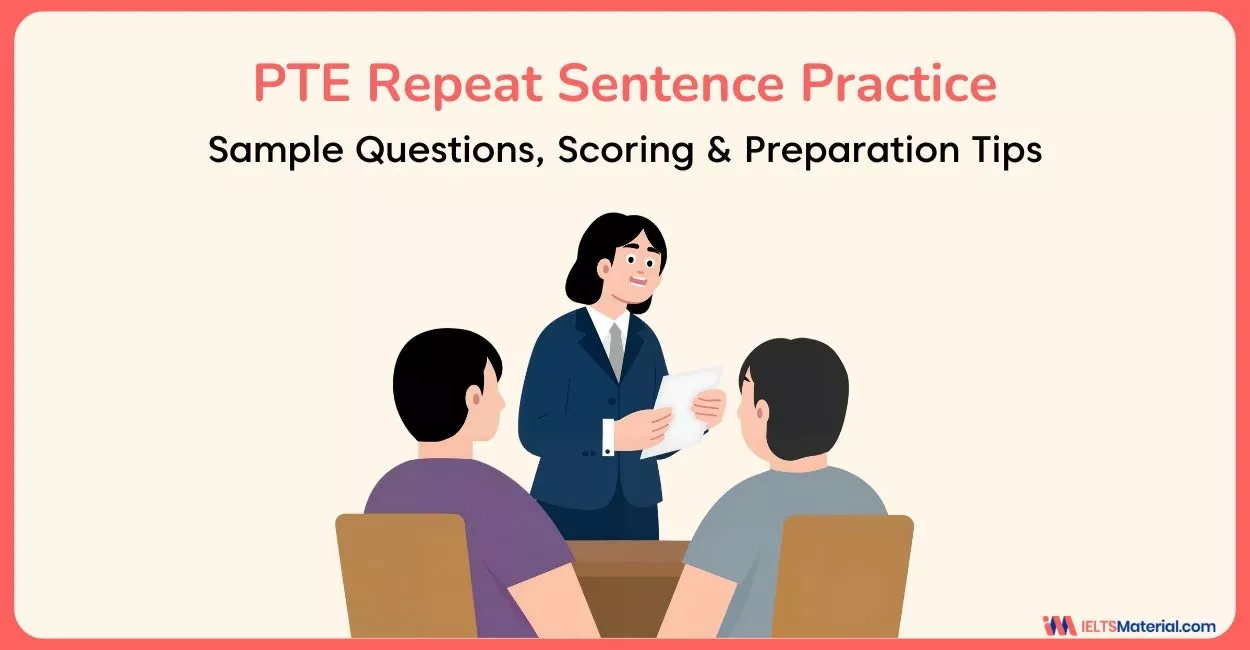Role of IELTS Practice Tests in Achieving High IELTS Band Score
6 min read
Updated On
-
Copy link
IELTS practice tests help familiarize candidates with the exam pattern, identify strengths and weaknesses, improve time management, reduce test anxiety, and enhance language skills. Learn more about IELTS practice tests here.
Table of Contents

Limited-Time Offer : Access a FREE 10-Day IELTS Study Plan!
Among the various study materials available for IELTS preparation, IELTS practice tests are considered to be the most effective. They not only help candidates in preparation by simulating the real IELTS exam but also are pathways to achieve a high IELTS score.
In this blog, we will discuss how these free IELTS practice tests will be your guide on the IELTS journey, provide some free IELTS online tests and share some strategies to make the most of these tests.
Role of IELTS Practice Tests in Achieving High IELTS Band Score
IELTS practice tests are created based on the actual exam that include four sections candidates take during the exam: Listening, Reading, Writing, and Speaking.
They cover a wide range of question types, format, and topics, and are intended to offer candidates a realistic sense of what the test will be like. Given below are some pointers that highlight their role in achieving a high band score.
-
Familiarizing with the IELTS Exam Pattern
One of the primary benefits of taking the IELTS mock tests is to get acquainted with the IELTS test pattern as they replicate the actual IELTS test. Each section of the exam has a different set of questions or tasks with their specific instructions and the topic they are based on. So, when candidates practice these mock tests, they experience the differences firsthand and it reduces the surprises in the exam.
For example, candidates will have to spend 30 minutes answering 40 questions and listening to four recordings in the IELTS Listening exam. Accurately answering the questions and keeping up with the audio can be difficult without prior practice. Therefore, if candidates are previously acquainted with the pattern, they can handle this pressure on the test day.
-
Identifying Shortcomings & Strengths
Another vital aspect of the IELTS practice tests is that they aid in identifying weak and strong areas while practising.
For example, a candidate can have good reading comprehension skills, but might lack time management in IELTS Reading. Unless they take up these IELTS sample tests, they will not be able to figure it out. So, practising these tests allow the candidate to figure out the shortcomings and work on them while improving their strengths as well.
-
Improving Time Management Skills
Time management is one of the most common challenges for all IELTS candidates. Each section has a time limit and all the questions/tasks have to be completed within that limit without any exception.
When a candidate practices these IELTS mock tests, they get an idea of how to divide the given time into understanding the question, brainstorming or scanning, answering the questions and proofreading. This enables them to balance speed with accuracy to achieve the top IELTS band score.
-
Preparing Test Strategies
Regular practice guides candidates to create and improve their test-taking techniques. These IELTS practice exams provide them lots of chances to perfect these strategies, whether it's learning how to predict answers in the listening section, master the IELTS Reading keyword techniques, follow the word count in the IELTS Writing section, or increase fluency in the speaking section. They will eventually gain the self-assurance necessary to use these strategies successfully on the test.
-
Tracking Progress in Preparation
It's necessary to keep track of the progress as candidates prepare for the IELTS. In such cases, IELTS practice tests yield quantifiable results and so, they give a concrete means of monitoring progress.
Regular practice lets candidates recognize how far they have come and what still needs work, whether it's raising the percentage of correct answers in the reading module or strengthening the coherence and cohesion in IELTS Writing.
-
Reducing Test Day Anxiety
IELTS test-takers often experience test anxiety, particularly if they are taking the exam for the first time. Higher pressure to perform well and unfamiliarity with the testing environment might lead to errors and poorer scores. But since IELTS mock tests provide them with a clear image of what to expect on exam day, they help to decrease nervousness.
They help candidates to grow more accustomed to the exam environment with the more IELTS practice tests they take. This comfort level will help them remain calm and relaxed, which will enhance the overall performance under pressure.
-
Enhance Language Skills
Besides familiarizing with the exam format and assessing skills, IELTS mock tests also improve the overall language skills of the candidates by sharpening their skills in listening, reading, speaking, writing as well as boosting their IELTS vocabulary and grammar. Eventually, these skills will come in handy in communicating with English speakers even after the exam is over.
Module-Wise Free IELTS Mock Tests for Practice
Solving these free IELTS mock tests can help candidates who will be taking the IELTS pen and paper test or the computer version of the examination. These are some links to online free IELTS practice tests.
|
IELTS Listening |
IELTS Reading |
IELTS Writing |
IELTS Speaking |
|---|---|---|---|
Need help with IELTS preparation?
Book a Free Demo & Learn from the Best!
Strategies on How to Use IELTS Mock Tests Effectively
One of the most important steps candidates can take to get ready for the real exam is to prepare with IELTS practice tests. However, even while mock exams are a great way to practice, practising without a proper strategy might not get the greatest results. Therefore, to maximize the IELTS preparation and dramatically raise the band score, follow the strategies given below.
Simulate Real Exam Conditions
- Set a timer for each section as per the real test: 30 minutes for Listening, 60 minutes for Reading, 60 minutes for Writing, and 11-14 minutes for IELTS Speaking.
- Find a quiet place where you won’t be interrupted. Avoid checking your phone or taking breaks between sections.
- Take all sections (Listening, Reading, Writing) in one sitting, just like the real test. For the Speaking section, practice separately, preferably with a study partner or a coach.
Review and Analyze Your Mistakes Thoroughly
- Go through each section and identify specific mistakes. For example, in the Listening section, did you miss key details or misunderstand the question?
- Look for patterns in your errors. Are you consistently making the same types of mistakes (e.g., spelling errors, misunderstanding vocabulary, etc.)? Recognizing patterns helps you target your weaknesses more effectively.
- For each mistake, review relevant grammar, vocabulary, or techniques to improve your understanding and prevent future errors.
Focus on One Section at a Time
- While taking full-length exams on a regular basis is crucial, concentrating on specific areas can also help you improve your skills in a targeted manner.
- You can delve further into the particular difficulties and develop expertise in that area by focusing on one section at a time.
Train for Speed and Accuracy
- While taking mock tests, pay attention to how much time you spend on each question. Gradually reduce the time it takes you to answer by setting time goals for each section.
- In the Reading section, for instance, some questions will be harder than others. Learn to skip or return to difficult questions instead of spending too much time on them.
- After each test, note down how long it took to complete each section and which part consumed the most time.
Use High-QualityIELTS Mock Tests
- Use reputable IELTS preparation websites like IELTSMaterial and apps that offer high-quality practice tests. Make sure these materials mimic the actual test’s standards.
- While official tests are crucial, supplement your preparation with additional high-quality tests from trusted sources. This will expose you to a broader range of question styles and topics.
To conclude, effective use of IELTS mock exams requires a combination of planning, research, and regular practice. Candidates will greatly increase their chances of getting a high band score by picking high-quality tests, managing time, evaluating their mistakes, imitating real exam settings, concentrating on individual portions, and measuring their progress.
Also Check:
Frequently Asked Questions
How to achieve a high score in IELTS?
Do mock test marks matter in IELTS?
How many practice tests are enough for IELTS?
Is practice important for IELTS?
Learn everything about IELTS

Start Preparing for IELTS: Get Your 10-Day Study Plan Today!
Explore other IELTS Articles

Kasturika Samanta

Haniya Yashfeen
Recent Articles

Kasturika Samanta









Post your Comments